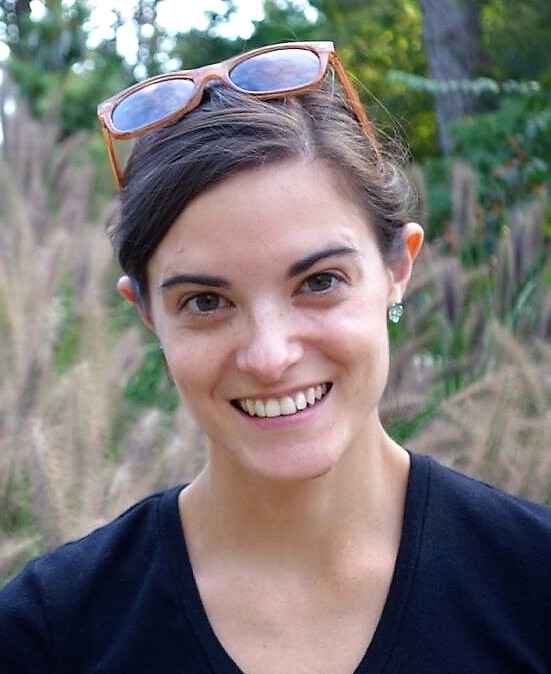About the department:
I’m a new assistant professor in Penn’s Biology Department, located in downtown Philadelphia. We're a broad biology department: ongoing research ranges from cellular and developmental biology to molecular genetics to ecology and evolution. I started my job during the COVID pandemic, which has been very strange. I’m looking forward to meeting my new colleagues in person after this is all over!
About the research:
My lab studies the evolution and ecology of host-symbiont interactions. We’re especially interested in interactions involving multiple symbionts, when the host’s response to one symbiont has cascading effects on others. Our research is driven by two big questions: When do these cascading effects constrain adaptation in species interactions, and how do they influence the assembly of host-associated communities? We use plants (mostly the legumes genus Medicago) and their microscopic root mutualists and parasites to tackle these questions, drawing on approaches ranging from quantitative genetics to population genomics to field ecology in wild plant populations.
What has been the biggest challenge as a new PI so far?
Learning how to be a good mentor. Facilitating my trainees’ success is probably the most impactful thing I do in science, and I find that responsibility really humbling. It’s especially challenging because I know that good mentorship is individualized: effective advocacy, advice, and support look very differently for trainees at different career stages, from different backgrounds, or with different career goals.
Are you recruiting? If so, how do you/ will you choose new lab members?
Yes, I’d always love to hear from folks interested in joining my lab! I tend to look for people who are curious, creative, and kind: folks who are excited about biological questions, driven to find novel ways to answer them, and who will change our lab community for the better. I don’t place a strong emphasis on specific skills when recruiting, because I think the point of joining a lab as a trainee is to learn new things.
When was your first Evolution Meeting, and how did it affect your career?
My first meeting was in 2010 in Portland, Oregon. Because it was my very first conference, it was definitely intimidating and overwhelming, but I still distinctly remember feeling like I had found my people. I’ve attended every Evolution meeting since, and that feeling hasn't changed.
Are you involved in evolution outreach? Tell us about it.
Shout-out to Market Science, an outreach program that brings hands-on science exhibits to city farmers’ markets! My lab got involved at the University of Pittsburgh, where I was an assistant professor for two years before moving to Penn (Market Science started at the University of Minnesota; Maria Rebolleda-Gómez brought it to Pitt when she was a postdoc). Our exhibit, “Farmers’ Invisible Friends,” was all about plant roots and plant-microbe mutualisms: as a souvenir, kids got to plant their own bean seed in a “rhizotron” (a plastic CD case) and take it home to watch all the cool things their plant was doing underground.
Do you have a time management tip to share?
Break down big projects like manuscripts and grants into bite-sized pieces: concrete tasks that you can accomplish in an hour or less. I’ve found that this helps me make consistent progress, especially now that my time is more fragmented than it was as a grad student or postdoc. An added bonus for me is that it decreases the activation energy associated with working on something big and hard like a grant or a manuscript, since each bite-sized task isn’t scary enough to procrastinate on!
What book should every evolutionary biologist read?
I loved “The Beak of the Finch” by Jonathan Weiner. It’s essentially a chronicle of Rosemary and Peter Grant’s beautiful work on Darwin’s finches, interwoven with the history and fundamentals of evolution by natural selection. I read it when I was a junior in college and was hooked: at the time, I was an English major, but the next semester I registered for my first upper-level biology class. That book is part of the reason I'm an evolutionary biologist today.
Do you remember making any mistakes as a trainee; how did you recover?
Here’s one that I remember vividly (there have been many, many more!): I spent an entire day measuring hundreds of beetles. When I was done, I sorted the spreadsheet column containing all my measurements—but I only sorted that column, which disassociated each measurement from the beetle it belonged to. Then I saved the file. I fessed up to my research mentor, who reassured me that it wasn’t the end of the world, and suggested that I call it quits for the day. (I spent the whole next day re-measuring beetles.) These days when I make a mistake, I still try to follow my mentor’s advice: figure out what you need to do to recover, and then take a break – you probably need it.
 Corlett Wood
Corlett Wood
